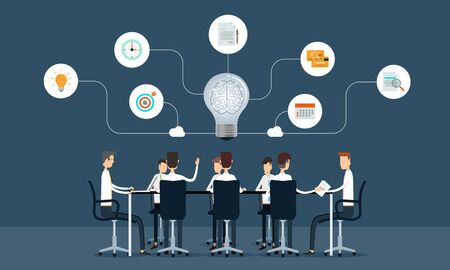《財富》頭腦風暴健康大會的6個耀眼瞬間

?
|
健康很重要。這是230位全球頂尖的醫療衛生思想家、科學家、企業家和投資者在令人大開眼界的兩天討論之后得出的最后結論之一。今年,第二屆《財富》年度頭腦風暴健康大會在圣迭戈舉行,人們關注的焦點是變革性的技術和創意,以及實現它們的公司。IBM沃森健康(Watson Health)的黛博拉·狄桑卓和李維斯(Levi Strauss & Co.)的奇普·博夫等杰出商業人士都表示,思維模式的轉變,使得關注員工幸福感成為了核心。而在會議過程中,另外兩個想法也成為了人們的焦點:其一是人們表現出了普遍的謙遜,認為我們對人類的健康問題仍然知之甚少;其二是數字健康革命,如果使用得當,可以前所未有地加快人類探索未知的速度。 小達雷爾·斯塔基,洛杉磯閃電隊(Los Angeles Chargers) “比賽開始前,我的心率達到了頂峰,隨后在比賽中慢慢平復下來——那場比賽進入了加時。” 小達雷爾·斯塔基,現洛杉磯閃電隊隊員 美國橄欖球聯盟(NFL)正使用Whoop的聯網腕帶來測量他的身體在壓力下的恢復速度。他說:“如果你在上床前喝了點酒,恢復的速度就會嚴重下降。” 馬克·貝托里尼,Aetna的首席執行官 Aetna的首席執行官馬克·貝托里尼的兒子在16歲時被診斷出患有一種罕見的淋巴瘤,醫生勸他放棄治療的希望。貝托里尼在與時代公司(Time Inc.)的艾倫·莫里的一次坦誠的交流中談到:“醫療體系把他看作一種疾病,而不是我的兒子。”他說,這只是美國體系把健康僅僅認為是“沒有疾病”,而不是感到幸福的許多失敗的例子之一。盡管Aetna最近宣布在2018年退出所有可支付醫療法案(ACA)的保險交易,但貝托里尼表示他不認為奧巴馬的醫改會被撤銷。他對參會者說,我們需要的是“承認它需要修改”,然后去修改它。 喬·拜登,前美國副總統 “在沙盒里你們不會萬事順利。” ——前美國副總統喬·拜登 參會者在一個晚上輕松愉快地討論了癌癥的登月計劃、高檔藥的價格和政治明星不去競選總統的扭曲決定。前美國副總統喬·拜登對《財富》頭腦風暴健康大會的聯合主席大衛·阿古斯和其他全神貫注的生物制藥公司高管、投資者和其他醫療保健利益相關者表示,現在是時候聯合起來加入對癌癥的戰爭了——而他將會繼續自己的努力。拜登引用約翰?菲茨杰拉德·肯尼迪的登月演說,明確表達了自己的立場:“我們不應該再推遲了。” “Taboo”杰米·戈麥斯,黑眼豆豆合唱團成員 黑眼豆豆合唱團的成員“Taboo”杰米·戈麥斯表示:“我們不聽身體的話。”這位音樂家2006年從舞臺上摔下,多年來腹部和背部感到疼痛,但他毫不在意。2014年,他被診斷出睪丸癌,這讓他好好清算了一下過去,并開始了一段新的生涯。他如今致力于呼吁給美國醫療體系長期忽視的群體——美洲印第安人提供疾病預防、早期診斷和更好的醫療服務。 拉吉·旁遮普,Last Mile Health的首席執行官 “你不可能轟炸埃博拉病毒,或是建一堵墻阻止它。” 這句話出自Last Mile Health的首席執行官、內科醫師拉吉·旁遮普,他生動有力地闡述了“不為所有地區的所有人進行醫療投資的真正后果”。旁遮普和他的同事納希德·巴德利亞博士2014—2016年間身處抗擊埃博拉病毒的第一線,努力阻止了它的蔓延。巴德利亞是波士頓頂尖的傳染病專家,她表示我們需要改變阻止疾病爆發的文化:我們不能一直“追逐一個又一個的病原體”。 亞當·格薩里,醫學博士、哲學博士 “95%的人每天平均有三分之一的時間要處理多項任務。” ——亞當·格薩里,醫學博士、哲學博士,加州大學舊金山分校神經科學影像中心主任(財富中文網) 本文的另一個版本將發表于《財富》2017年6月1日刊。 譯者:嚴匡正 |
Wellness matters. That was one of the definitive conclusions reached after an eye-opening two days of discussion with 230 of the world’s leading health care thinkers, scientists, entrepreneurs, and investors. The second annual Brainstorm Health gathering in San Diego focused on the transformative technologies and ideas happening right now—and on the companies making them happen. At the heart of this changing mindset is a new focus on worker well-being, said business luminaries ranging from IBM Watson Health’s Deborah DiSanzo to Levi Strauss & Co.’s Chip Bergh. And over the course of our meeting two more ideas kept rushing to center stage: One, there’s a widespread sense of humility about what we still don’t know about human health. And two, the tools of the digital health revolution, if used appropriately, can accelerate the search for those answers as never before. Darrell Stuckey Jr., Los Angeles Chargers “My heart rate peaked right before the game, and it gradually went down during the game—and that game went into overtime.” —Darrell Stuckey Jr., of the now–Los Angeles Chargers. The NFL safety is using Whoop’s Internet-connected wristband to gauge how quickly his body recovers after stress. “Recovery drops dramatically if you have a couple of drinks before bed,” he says. Mark Bertolini, Aetna CEO Doctors told Aetna CEO Mark Bertolini to give up hope after his son Eric was diagnosed at age 16 with a rare form of lymphoma. “The health system viewed him as a disease rather than my son,” said Bertolini in a candid talk with Time Inc.’s Alan Murray. That is just one of the many failings in a U.S. system that considers health the mere “absence of disease” rather than the presence of wellness, he said. Though Aetna has recently announced it will withdraw from all ACA insurance exchanges in 2018, Bertolini said he didn’t think Obama?care would be repealed. What we need to do instead, he told the gathering, “is admit that it needs to be fixed.” And then fix it. Joe Biden, Former Vice President “You don’t all play well in the sandbox.” —Former Vice President Joe Biden On a clear brisk night there was talk of cancer moonshots, of stratospheric drug prices, and of a political star’s wrenching personal decision not to run for President. Former Vice President Joe Biden toldFortune Brainstorm Health cochair David Agus and a rapt audience of biopharma execs, investors, and other health care stakeholders that it was high time to cooperate and collaborate in the war on cancer—and that he would continue his efforts here. Quoting a line from JFK’s moonshot speech, Biden made his own message clear: “We should be no longer ready to postpone.” Jaime 'Taboo' Gomez, Black Eyed Peas “We don’t listen to our bodies,” said Jaime “Taboo” Gomez, of the Black Eyed Peas. The musician ignored the pain he’d had in his abdomen and back for years, attributing it to a stage fall in 2006. A 2014 diagnosis of testicular cancer brought him to a personal reckoning—and a new crusade. He’s now leading a call for prevention, early diagnosis, and better medical care for a group long ignored by the U.S. health care system: Native Americans. Raj Panjabi, CEO of Last Mile Health “You can’t bomb Ebola or put up a wall to stop Ebola.” Those were the words of physician Raj Panjabi, the CEO of Last Mile Health, who eloquently and forcefully laid out “the real consequences of not investing in health care for everyone, everywhere.” Panjabi and fellow panelist Dr. Nahid Bhadelia stood on the front lines of the 2014–16 Ebola epidemic, helping to contain its spread. Bhadelia, a leading infectious disease expert in Boston, said we need a change in culture when it comes to preventing outbreaks: We can’t keep “chasing one pathogen after another.” Adam Gazzaley, MD, Ph.D. “95% of people multitask on average for a third of the day.” —Adam Gazzaley, MD, Ph.D., director of UCSF’s Neuroscape translational neuroscience center A version of this article appears in the June 1, 2017 issue of Fortune. |













